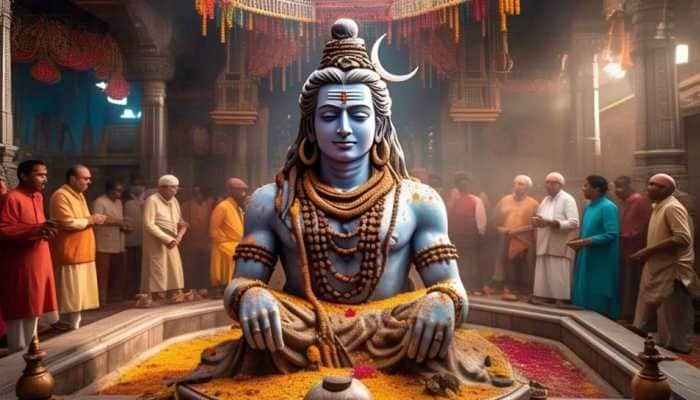US Supreme Court nominee stakes out independence from Donald Trump
Neil Gorsuch, President Donald Trump`s U.S. Supreme Court pick, said on Tuesday he would have no trouble ruling against the president as he tried to stake out his independence amid concerns by Democrats that he would be beholden to the man who nominated him.
Trending Photos
)
Washington: Neil Gorsuch, President Donald Trump`s U.S. Supreme Court pick, said on Tuesday he would have no trouble ruling against the president as he tried to stake out his independence amid concerns by Democrats that he would be beholden to the man who nominated him.
With the ideological balance of the Supreme Court at stake, the Senate Judiciary Committee opened the second day of its confirmation hearing for Gorsuch, a conservative federal appeals court judge from Colorado. Republicans, who control Congress, have praised Gorsuch, 49, as highly qualified for a lifetime appointment as a justice.
Chuck Grassley, the panel`s Republican chairman, asked Gorsuch "whether you`d have any trouble ruling against a president who appointed you."
"That`s a softball, Mr. Chairman," Gorsuch said. "I have no difficulty ruling against or for any party, other than based on what the law and facts in the particular case require. And I`m heartened by the support I have received from people who recognize that there`s no such thing as a Republican judge or a Democratic judge. We just have judges in this country."
If Gorsuch is confirmed by the Senate, as expected, he would restore a narrow 5-4 conservative court majority. The seat has been vacant for 13 months, since the death of conservative justice Antonin Scalia.
Despite slim chances of blocking his nomination in the Republican-led Senate, Democrats have raised questions about Gorsuch`s suitability for the job.
"I have offered no promises on how I`d rule in any case to anyone. And I don`t think it`s appropriate for a judge to do so, no matter who`s doing the asking. And I don`t, because everybody wants a fair judge to come to their case with an open mind and to decide it on the facts and the law," Gorsuch told the committee.
Senate Democrats and liberal activists have criticized Trump for promising to nominate a jurist who would pass an anti-abortion "litmus test." Gorsuch said on Tuesday that no one in the nomination process ever asked him for commitments or promises on how he would rule in any case. "I wasn`t about to become a party to such a thing," Gorsuch said.
Gorsuch said Supreme Court precedents deserve respect, even as he sidestepped answering whether he thought a series of contentious cases from the past had been decided correctly. He said it would be "beginning of the end" of the independent judiciary if judges had to indicate how they would rule in future cases.
Grassley and Dianne Feinstein, the senior Democrat on the committee, asked Gorsuch about the Supreme Court`s landmark 1973 ruling in the case Roe v. Wade, which legalized abortion in the United States.
Feinstein asked Gorsuch whether that ruling should be considered a "super precedent." "It has been reaffirmed many times," Gorsuch responded, although he offered no view on whether it was properly decided.
`A GOOD JUDGE`
"A good judge will consider it as precedent of the United States Supreme Court worthy of treatment of precedent like any other," he added.
"I`m not in a position to tell you whether I personally like or dislike a precedent. That’s not relevant to my job," he added.
Gorsuch also declined to offer his view on whether cases on gun rights, the right to a lawyer in a criminal case, religious rights and the ruling tipping the 2000 presidential election to Republican George W. Bush were correctly decided.
Gorsuch, wearing a navy blue suit and a purple tie, shook hands with supporters and senators as he arrived in the committee room. Grassley said the hearing could last about 10 hours, with all the committee members getting to question him.
Before the hearing resumed on Tuesday, about 60 Gorsuch supporters rallied on the sidewalk outside the Senate office building, many from a student anti-abortion movement carrying signs saying, "We don`t need Planned Parenthood," referring to the women`s healthcare provider that performs abortions.
In his opening statement to the panel on Monday, Gorsuch defended his judicial record, emphasizing the need for "neutral and independent judges to apply the law."
Democrats outlined their lines of attack in their opening statements on Monday, with some senators saying they would press him on whether he is independent enough from Trump, who has condemned federal judges who have put on hold his two executive orders to ban the entry into the United States of people from several Muslim-majority countries.
Gorsuch will also face questioning over cases he has handled on the appeals court in which corporate interests won out over individual workers.
Grassley said on Monday the committee is likely to vote on the nomination on April 3, with the full Senate vote likely soon after. The hearing could last four days.
Republicans hold 52 of the Senate`s 100 seats. Under present rules, Gorsuch would need 60 votes to secure confirmation. If Gorsuch cannot muster 60, Republicans could change the rules to allow confirmation by a simple majority.
Stay informed on all the latest news, real-time breaking news updates, and follow all the important headlines in india news and world News on Zee News.
Live Tv







)
)
)
)
)
)
)
)
)
)
